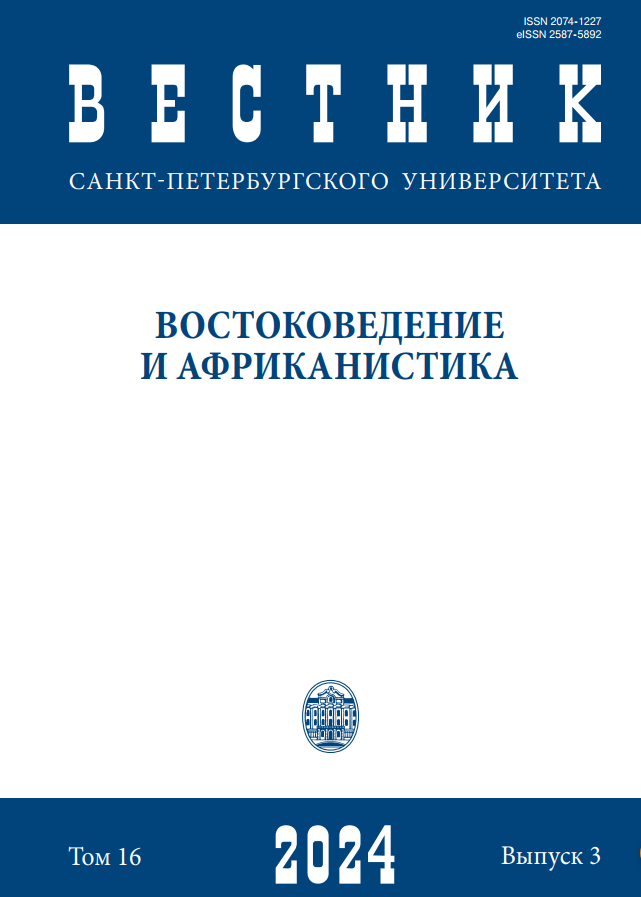Arab Oil vs Green Agenda
DOI:
https://doi.org/10.21638/spbu13.2024.311Abstract
The article deals with the influence of the Climate Change Agenda on the policy of Arab oilproducing countries. Authors investigate transformation of the Climate Change Agenda into a mechanism used to compensate for the growing geopolitical influence of Arab oil-producing countries, including trends formed by global Climate Agreements to abandon hydrocarbon fuels and divestment in the oil industry. New types of risks generated by Climate Change Agenda for the oil industry in recent years and are analyzed, including environmental ratings for financing projects for the extraction and processing of organic fuels, developed by Western non-governmental organizations of an environmental profile and aimed at exerting pressure on financial institutions to change their credit policy in the direction of abandoning projects in the oil and gas industry. The practice of using legal instruments to influence oil and gas corporations, including lawsuits against oil and gas companies, undertaken to recognize the responsibility of the latter in the climate crisis and undermine their financial stability by imposing fines, is highlighted; this practice, which has become popular in recent years in the
jurisdictions of Western countries, acquires an openly extraterritorial character and becomes a threat to Arab oil and gas companies. Special attention is paid to such a new EU initiative as the CBAM Carbon Border Adjustment Mechanism, which carries obvious risks for Arab producers of oil and gas chemistry products and in the future may degenerate into a new type
of duty on mineral fuels, illegitimate from the point of view of international trade standards approved by the WTO. New moments in the policy of the Persian Gulf countries in 2022–2023 have been revealed: an attempt to promote the own version of the climate agenda and the concept of “net zero emissions”. Perspective of changing the role of Arab countries in the global Climate Change Agenda is assessed in the light of the fundamental changes in the world order that manifested themselves in 2022–2023.
Keywords:
Greenhouse Gas Emissions, climate policy, Paris Agreement, Kyoto Protocol, The UN Framework Convention on Climate Change (UNFCCC), Club of Rome, OPEC, Net zero concept, International Energy Agency (IEA), Earth Summit
Downloads
References
Downloads
Published
How to Cite
Issue
Section
License
Articles of "Vestnik of Saint Petersburg University. Asian and African Studies" are open access distributed under the terms of the License Agreement with Saint Petersburg State University, which permits to the authors unrestricted distribution and self-archiving free of charge.





